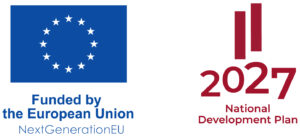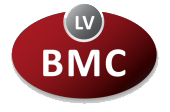
Project title: Development of a Latvian population genome reference
Funding: Recovery and Resilience Facility
Project No.: 4.1.1.r.0/3/22/I/VM/001
Period: 01.02.2020.-31.12.2024.
Project costs: 2 322 750,00 EUR
Principal Investigator: Dr. biol. Jānis Kloviņš
Project summary:
The aim of the project is to create a genome reference of the Latvian population, which will be used for research, disease prevention and treatment optimization, and to ensure its inclusion in a single European genome reference.
Main performance indicator of this project is the creation of a Latvian population genome reference by March 31, 2024 (Latvia’s participation in the Genome for Europe project – GoLatvia project).
The project is closely related to the declaration of the European Commission “European Million Genomes Initiative” (1+MG), within the framework of which a genome reference of the European population is being created, which will consist of the national genome sequence databases of individual European countries. The first phase of the project envisages the implementation of The Genome of Europe (GoE) Project by creating a reference genome database by obtaining and collecting 500,000 individual human genomes from all European countries. In terms of volume and process quality, the activities planned in the project are aligned with the recommendations developed by the GoE and directly correspond to the nature of the 1+MG initiative and the investment goal set in the Recovery and Resilience Fund plan.
First of all, the involvement of 3500 Latvian residents will be implemented. The acquisition of genetic material, anthropometric data and a description of the state of health will be performed using the Genome Database of Latvian Population (LGDB) and standard operating procedures for involvement, logistics, sample and data processing developed by the Genome Center. The activities to be carried out in the project comply with the norms of the Genome Research Law and have received the clearance of the Central Medical Ethics Commission (01-29.1.2/1669/E 1.1-2/21) and the Genome Research Council (No.A-5/22-05-24). The main result of the activity is a high-quality collection of genomic DNA obtained from blood cells and its appropriate storage at low temperatures, as well as a database of associated anthropometric, phenotypic and health status descriptions.
The above activities will enable the 1+MG to meet its goal of enabling the linking of genomic sequences and health data to help clinicians predict, prevent and diagnose disease and better treat patients based on their individual genomic characteristics. More and more people will be able to benefit from data sharing and physician access to many linked genomic databases. The main benefits are planned in four disease areas – rare diseases, cancer cases, common chronic diseases and their therapy, as well as infectious diseases. First, the reference genome will greatly aid in the diagnosis of rare diseases by helping to clarify the disease-causing mutations in the already existing diagnostic model. By expanding the scope of whole-genome sequencing (for example, providing it to newborns), it will be possible to detect most inherited diseases before they occur, providing adequate treatment in time. Second, similarly, the reference genome is already being used in cancer diagnostics, helping to identify somatic cancer-causing mutations that are increasingly the basis of targeted cancer therapies. The greatest potential of using the population genome reference is in accurately determining the risk of contracting the common chronic diseases that cause the greatest economic burden in Latvia. In this case, the genome reference in combination with a relatively cheap genotyping test allows a greater number of people the opportunity to identify the individual risks of diseases, as well as to determine the effectiveness of medication use. It will optimize screening procedures for many diseases, early detection or even prevention of diseases such as cancer, diabetes and cardiovascular diseases. For infectious diseases, this approach will also help identify high-risk groups that are at greater risk.
Information published 01.11.2022.
Progress of the project:
1 November 2022 – 30 April 2023
In order to realise the involvement of the population of 3500 Latvia, a work plan for the involvement of project participants has been developed for the acquisition of the genetic material, anthropompometric data and health status description, ensuring logistics and establishing procedures for standard processing of samples and data using the National Population Genome Database (VIGDB) and the infrastructure of the Genome Centre. In line with the recommendations of the European Genome Project, informed consent forms have been developed in addition to the consent forms used by VIGDB, which provide for the use of data directly for the purposes of the Latvian Population Genome Reference and the European Genome Project. The conformity of the relevant documentation with the provisions of the Genome Study Law has been evaluated and received by the Central Medical Ethics Commission (01-29.1.2/1669/E 1.1-2/21) and the Genome Research Councils (No. A-5/22-05-24) opinions. The needed infrastructure for the project has been prepared.
Information published 02.05.2023.
Progress of the project:
1 May 2023 – 31 October 2023
In the reporting period 1306 residents have applied and completed the application questionnaire. 768 DNA samples have been sequenced. Continues active information about the possibility to participate in the project – posted information both on the BMC’s social media and by publishing information on the BMC’s website, as well as sending information to the media.
Information published 31.10.2023.
Progress of the project:
1 November 2023 – 30 April 2024
In the reporting period 3280 residents have applied and completed the application questionnaire. 1792 DNA samples have been sequenced. Continues active information about the possibility to participate in the project – posted information both on the BMC’s social media and published information on the BMC’s website, as well as send information to the media.
Information published 30.04.2024.
Progress of the project:
1 May 2024 – 31 October 2024
In the reporting period 4526 residents have applied and completed the application questionnaire. 2784 DNA samples have been sequenced. Continues active information about the possibility to participate in the project – posted information both on the BMC’s social media and published information on the BMC’s website, as well as send information to the media.
Information published 31.10.2024.
Progress of the project:
1 November 2024 – 31 December 2024
During the reporting period, the sequencing of reference project samples continued. By the end of the project’s reporting period, sequencing of 3520 samples was completed, obtaining the required data volume and successfully finalizing the sequencing of all planned samples.
Information published 02.01.2025.

